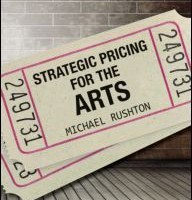News sites on the web demand a stream of content, and a sure way to produce something is to make a list. My previous post knocked a recent list of 'top cities for culture', on the grounds that the way the index was constructed made no sense. Another day, another list, this one from Atlantic's CityLab: 'The best job markets for young college grads now'. Relevant to me, as I teach students in arts administration and hope to understand as best I can what is happening in the labor market. The piece has some of the usual problems of all indices … [Read more...]
How should we rank the cultural/creative scenes of cities?
Yesterday I came across a ranking of the 'top 20 US cities for culture', from the real estate blog propertyshark.com (no, not one I usually follow, h/t Ted Gioia). The internet loves to produce listicles, and diminishing returns have long set in when it comes to ranking cities. But this one raises an important issue for researchers of the creative economy. It ranks cities according to cultural venues (museums, libraries, theatres) per capita. Their reasoning: And while New York City has an impressive number (2,693!) of such properties — … [Read more...]
The superstar economy
The distribution of artists' earnings is heavily skewed, much more unequal than in the population as a whole, between some who earn very, very much and those whose earnings are negligible (if not zero, in their search for free exposure). The economic analysis of 'superstars', pioneered by Sherwin Rosen, finds that when given a choice audiences will, by a great majority, buy from what is considered to be the very best, and so the very best capture the lion's share of the earnings. When are earnings likely to be most skewed? There are two main … [Read more...]
Dora’s amazing tax credit adventure
The New York Times Arts page reviews the new adventure of Dora the Explorer, now a little older, and starring in 'Dora and Friends: Into the City!', which apparently looks pretty suburban. And Dora's talking backpack is full of dollars, courtesy of New York state taxpayers. Variety reports: While states offering tax credits for filmmaking usually have their sights set on drawing movies that will showcase their locales, there is an increasing battle to draw post-production work, particularly in music scoring, animation and visual effects, … [Read more...]
Amazon and Orwell and Penguins (Updated)
By now most everyone who follows artsjournal.com and the Amazon dispute has heard of its strange use of George Orwell in its (shockingly mishandled) dispute with the publishing sector. The New York Times reports: The freshest part of Amazon’s call to arms was the history lesson. It recounted how the book industry hated mass-market paperbacks when they were introduced in the 1930s, and said they would ruin the business when they really rejuvenated it. Unfortunately, to clinch its argument, it cited the wrong authority: “The famous … [Read more...]
Know when to fold ’em
There lies a contradiction within us. As teachers, mentors, coaches, friends, parents, we encourage people to pursue their dreams, to strive, persevere, don't give up. We reward and praise determination, the kid who 'sticks with it.' And we should - these are excellent qualities in a person, very worth fostering. But at the same time we know that there are circumstances when, in fact, the time to 'stick with it' is past, when the costs of continuing to strive for success, in a career path, an artistic pursuit, a relationship, vastly outweigh … [Read more...]
Sir Alan Peacock
I was saddened to read of the death of Sir Alan Peacock, a most influential figure in the scholarship, and application, of economic analysis of the arts. The Daily Telegraph's obituary is here. I remember back to when I first began exploring the field of cultural economics, and his (then recent) book Paying the Piper was one of the first I picked up on the subject. Years later when the International Journal of Cultural Policy invited a group of us to write a short essay on the book that had most influenced us, that was my choice. … [Read more...]
Performance measures, indices and rankings
Ok, not a blog post title likely to set your pulse racing, but with so much discussion in the arts world the past few years on the uses of data, a caveat. It is brought to mind by a story from Money magazine (a branch of Time), which has tried to make inroads on US News turf, and do some college rankings. These new rankings are all about 'value for money' - what does it cost to attend; what is the payoff in salary. Whatever your thoughts on that focus, my issue is with how the rankings are constructed. Money's method is given here. The … [Read more...]
Strategic pricing for the arts
I'm pleased to say my book on pricing in the arts has been released - Amazon link here, and Routledge link (including for ordering e-inspection copies) here. What's it all about? As I do on this blog, I have tried to give arts managers, and students of arts management, a systematic way of thinking about setting prices, for museums, performances and festivals, whether commercial, nonprofit, or public sector. There is a substantial academic literature on the subject, but much of it is aimed at the economics profession rather than … [Read more...]
Summer books: Brad Stone’s ‘The Everything Store’
In the past few months there are few businesses that have come in for such vilification as Amazon.com - including in many of the stories and blogs here at artsjournal.com - and so Brad Stone's book, subtitled 'Jeff Bezos and the Age of Amazon', is timely, to say the least. It has been the subject of deep reviews by George Packer at The New Yorker, and Steve Coll in The New York Review of Books, and I recommend each of those. It is hard in this case to separate a review of the book and a review of Amazon itself (I don't think I'm the only … [Read more...]









